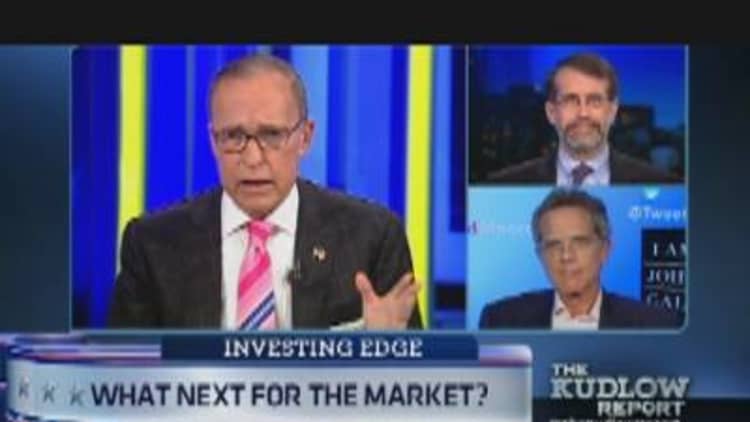You'll have to excuse fund managers for looking like they're about to get coal in their stockings. They've had an awfully rough year.
Just one in four managers beat the major stock indexes this year, as an intensely volatile market environment drove an aversion from risk that left many dangerously exposed during pullbacks and woefully flatfooted during rallies.
The primary drivers of the underperformance were the toxicity of the European debt crisis and an uncertain recovery in the U.S.
Only 23 percent of large-cap managers beat the Standard & Poor's 500 and 27 percent outdid the Russell 1000, according to Bank of America Merrill Lynch.
It all added up to a year in which the stocks-are-cheap mantra was wishful thinking, and one where market-movers essentially ignored company fundamentals and instead focused on larger global events for which there were no easy solutions.
For investors, it also posed the question of whether it was worth it anymore to pay for active mangers to pick stocks, or if they would just be better off going it alone with some simple fund picks based on the movement of broad market indices.
"Nine of the last 11 years my active strategies have beaten the market, and I'm underperforming this market. It's all headline risk," complains Mark Lamkin, CEO and chief investment strategist at Lamkin Wealth Management in Louisville, Ky.
"We like to move on trends. You take the last couple of weeks, we had some really hot days and we missed it. All of a sudden we're underperforming by a couple percent," he adds. "Headline risk beat the hell out of us."
The aversion to risk in turn helped drive up correlation — or the tendency of different asset classes as well as individual stocks to move up and down in tandem — making diversification and hedging more difficult and hamstringing returns.
Still, Lamkin offers few apologies for his strategy.
With so many crosscurrents happening in the world, his priority this year was making sure his clients' capital was protected, not taking excessive risks in hopes of catching a violent move higher.
"After coming through the Great Recession, most active managers are going to err on the side of caution. We got caught sitting with too much cash," he says. "As I've told clients, that doesn't mean it was the wrong move. If we were underperforming because I had bad picks or bad stocks or stayed in the market too long, at that point you should fire me...99 percent of my clients won't fire me for that."
Some investors, though, might well start asking whether they'd be just as well off buying an index fund or two on their own rather than paying the fees associated with active managers.
Underperforming managers are hoping their clients take the long view.
"The question has to be, over a long-term cycle, has the strategy provided value," says Gary Flam, portfolio manager at Bel Air Investment Advisors in Los Angeles. "You can't drive looking in the rearview mirror. From an investor aspect, what do I expect the next couple of years to hold, and given that outlook, how do I expect to outperform?"
The teetering economy has brought a new investing dynamic to the market, Flam says.
Whereas a few years ago the primary criteria was finding companies that had strong balance sheets, the focus has turned to those with stronger earnings growth potential. Many managers have been slow to adapt.
Banks, then, became less attractive despite having more than $1.5 trillion rolling around their balance sheets, while consumer staples, energy, industrials and health care became more attractive.

"Understand that six months ago everybody thought the economy was growing and we were on this sustainable path. You wanted companies that were exposed to continued economic growth," Flam says. "The last four months have laid bare that if you're positioned in companies with exposure to continued economic growth and that economic growth is put into question, your portfolio is going to suffer."
Like Lamkin, Flam expects that his clients will see the long-term value in their investment strategies and stay the course with active management.
However, , that could become a tougher sell.
"This has been a difficult market to just step into and trade because of the fact that benchmarks are beating most of the managers," says Uri Landesman, president of Platinum Partners, a New York-based hedge fund. "Obviously, clients are not real happy about paying fees in those environments."
For hedge fund mangers, the baseline is different as their performance is measured in total return, not against the relative performance of a broad index.
Landesman says he has had a good year in 2011, gaining about 18 percent for clients. He is hopeful that his business can be helpedby other managers who will need to window-dress their portfolios as a rough year draws to a close.
"Fund managers like these guys who are underperforming are going to want to make themselves look good for the rest of the year and make up for last ground," he says. "There's going to be an effort to pull out the year in the last month."


